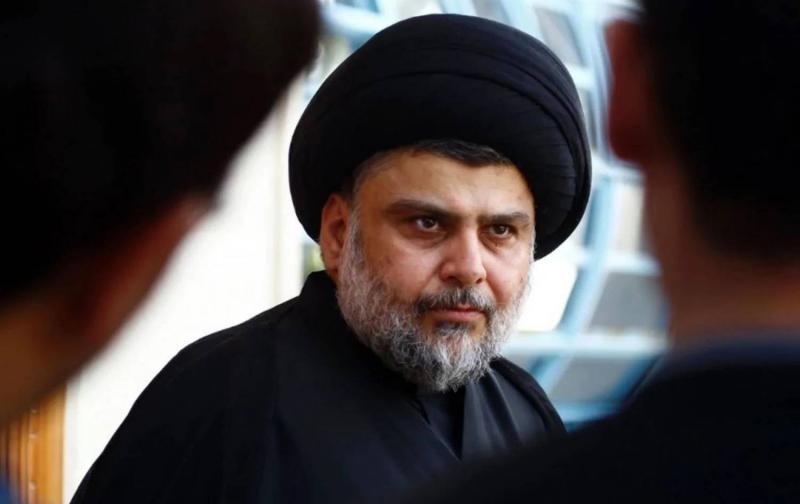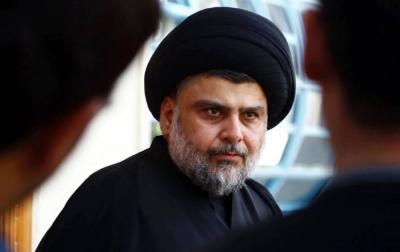There is serious talk in Iraq about postponing the elections until next year or merging them with the general voting for a new parliament, which has been ongoing for months, following the announcement by the leader of the Sadrist movement of "strict orders to his followers not to vote." These discussions intensified with a judicial decision that ousted Speaker of Parliament Mohammed Al-Halbousi from his position and parliamentary seat.
Politicians, even from the “Coordination Framework,” lean towards postponing the election date and are proposing new dates, the earliest of which is in the spring of next year. However, they face ambitions and enthusiasm from leaders like former Prime Minister Nouri al-Maliki and the leader of the "Asa'ib Ahl al-Haq" movement, Qais al-Khazali.
Provincial councils were abolished in 2020 when the Iraqi parliament voted to end their work in response to demands from the protests that began in October 2019, before political blocs agreed to reinstate them through local elections as part of the political agreement that formed Mohammed Shiya al-Sudani's government in 2022.
The importance of provincial councils has risen among key forces in the “Coordination Framework” due to the absence of the Sadrist movement from the Shiite equation; opponents of Sadr wish to seize additional areas of influence, even those previously controlled by the Sadrist movement. These forces show a strong desire to do what it takes to strip Sadr of his sources of power in governmental and security institutions, in anticipation of his return to the political process. In fact, they want to make it difficult for him when he participates in the general elections.
Sadr dealt a significant blow to the local elections, particularly regarding the competition between him and the forces of the "Coordination Framework," when last Monday he obliged his followers not to participate in the elections, stating: "Your participation with the corrupt saddens me greatly… Your boycott of the elections pleases me, and reduces the legitimacy of the elections internationally and domestically."
Later on, the general director of “Saraya al-Salam,” Tahseen al-Hameedawi, issued a warning to the formations of "Saraya" regarding the elections of provincial councils. He said: "I direct my words to those belonging to the formations of Saraya who involve themselves in these elections. They must withdraw their candidacy within 15 days; otherwise, we will have another response."
In addition to the political positions, troubling data has emerged from the field that reinforces these perceptions; various cities, notably Najaf, witnessed incidents of tearing down campaign banners of rival forces to Sadr. Iraqi civilians circulated videos of unknown groups purportedly loyal to Sadr, while deputies in the "Coordination Framework" estimate these limited moves as "a precursor to what will happen as we approach the election date."
During limited discussions within the "Coordination Framework," held over the last two days, one member of the alliance proposed forming a delegation to Al-Hanana to meet Sadr or his close associates to obtain guarantees regarding what will happen, or at least to gauge his pulse and discover Sadr's "plan." However, leaders in the "Coordination Framework" completely rejected this idea. Sources reported that leaders in the "Coordination Framework" refuse to succumb to Sadr's pressures, with one stating: "The Shiite component is larger than the Sadrist movement."
Nevertheless, calls supporting the postponement of the elections have intensified following the shocking dismissal of Speaker of Parliament Mohammed Al-Halbousi by the Federal Court. As the atmosphere of "settling scores" begins among the parties, Iraqi politicians lean towards the belief that these two events—Sadr's boycott and Al-Halbousi's dismissal—will erupt into a fireball that will pierce the stability that the "Coordination Framework" has relied upon since forming Al-Sudani’s government.
Regarding the issue of the Iraqi Parliament Speaker Mohammed Al-Halbousi, legal expert Mohammed Majid Al-Saadi confirmed that the powers of the Federal Supreme Court are absolute, including the termination of the membership of members of the House of Representatives if they find legal and constitutional violations. Al-Saadi stated, "The Federal Supreme Court derives its powers from its independence, and its rulings are constitutional by virtue of their obligation and binding nature across all authorities, as stipulated in Article 94 of the Iraqi Constitution of 2005."
He added, "It is a mistake to think that the Federal Supreme Court does not have the authority to terminate the membership of the Speaker of the House and that claiming the principle of separation of powers is a barrier for the Federal Supreme Court in issuing a decision to terminate the membership of the Speaker of the House is incorrect." He clarified that "the Federal Supreme Court is not subject to any authority in its decisions because it is an independent court, and it has previously issued rulings against the presidency of the judiciary itself, and its jurisdiction is general, absolute, and unlimited across all authorities because it is simply (supreme), meaning the highest court in constitutional matters."
The legal expert concluded by stating that the constitution granted the Federal Supreme Court this supremacy in endorsing the results of parliamentary elections based on the provisions of Article 93 of the Iraqi Constitution of 2005, and that arguing for the separation of powers is nothing but an illusion and a completely unproductive delusion.
Former Speaker Mohammed Al-Halbousi considered that the court does not have the right to examine the validity of a deputy's membership except after a decision from the House of Representatives, noting that "the constitution specifies the cases that necessitate terminating parliamentary membership, which are resignation, death, felony, or disability," in response to the Federal Supreme Court's decision to terminate Al-Halbousi's membership from the parliament.




